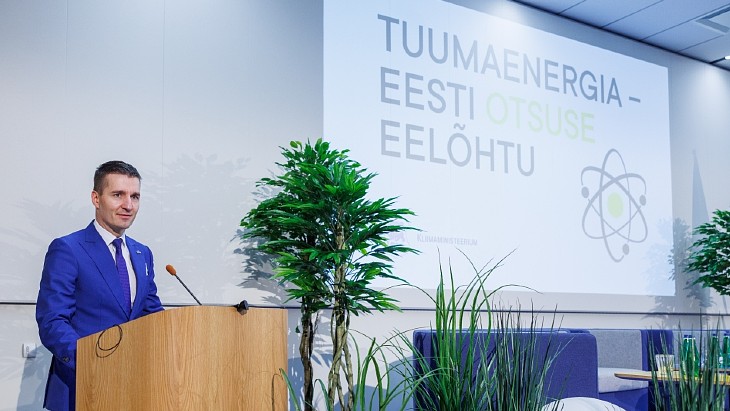
The conclusion of the group's two-and-a-half-year study has been published as part of the country's process of following the International Atomic Energy Agency's (IAEA's) roadmap for nuclear newcomer countries. According to the country's Ministry of Climate, the government and the Riigikogu parliament will soon begin discussing the potential launch of a nuclear energy programme.
The announcement, with a link to the published report, said: "The introduction of nuclear energy in a country with no previous experience requires years of preparation, and it would take 9-11 years to start producing electricity from the nuclear power plant. If it is decided to start using nuclear energy, the next step in Estonia should be the preparation of the legal framework, the development of competences and the process of choosing a location for a nuclear power plant."
Antti Tooming, the head of the nuclear energy working group and the deputy chancellor of the Ministry of Climate, said "nuclear energy has the potential to ensure a stable energy supply in Estonia for future generations" but warned that it "must not harm the addition of renewable energy production and storage capacities or cause the emission reduction to be postponed".
The report says that if the construction of the nuclear power plant is privately financed, the initial state budget costs in creating an enabling framework would be about EUR73 million (USD80 million) over a period of up to 11 years, but, the ministry reports, "the introduction of nuclear energy would bring additional revenues to the state, primarily in the form of higher tax receipts and the revival of economic activity, which would likely exceed the costs of creating and maintaining the national framework already at the construction stage of the nuclear power plant".
Estonia's current domestic electricity generation is dominated by fossil fuels, notably oil shale. The country is seeking to reach net-zero emissions by 2050 and is looking at nuclear power as a reliable and low carbon option to diversify its energy mix by 2035 when the country plans its phase-out of domestic oil shale. The report considered the potential of four SMRs, totalling 1200 MW, which would allow capacity for hydrogen production.
An IAEA mission to Estonia reported in October that the country had developed a comprehensive assessment of its nuclear power infrastructure needs to decide whether to launch a nuclear power programme. In February 2023, Estonia's Fermi Energia announced it had selected GE Hitachi Nuclear Energy's BWRX-300 SMR for potential deployment in the Baltic country by the early 2030s.